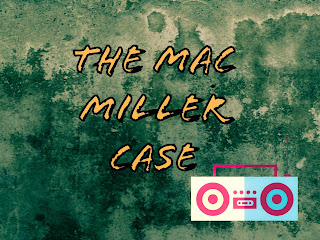Prosecutorial Immunity or Malicious Prosecution?
As the criminal justice system grew the notion of prosecutorial
immunity evolved as well, making the actions of this professional rarely
questionable. Although the safeguard
does have limitations, the idea of holding the government attorney accountable
for unethical or ill-conceived behavior has vanished. Rarely does it happen when an accused
civilian is able to use the justice system to their advantage and seek justice
for being a victim of the accusations that a prosecutor deemed them once guilty
of, and if it does occur it usually happens years after the conviction. Furthermore, as the burden of proof becomes less
challenging in this country it gives the prosecutors of the United States more
power to control their advancement in the specific occupation, as well as
making their day-to-day activities easier to go through, which is a form of laziness and
negligence.
Not
having to worry about wrongful prosecutions or being reprimanded allows this
professional to be candid in their occupational tasks, which in turn gives them
the freedom to use circumstantial evidence more than tangible proof. Once the use of circumstantial or hearsay
evidence becomes more sufficient/efficient
than actual proof the prosecutors can conjure up silly scenarios, as well as
provide a guilty adjudication without much objection; using spin to gain their desired verdict (which makes the burden of proof not a burden). Moreover, when cases are overturned (again,
usually not until years after the conviction) because of faulty courtroom
procedures the prosecutor does not deal with repercussions, at most maybe a lecture from
their counterparts or a “slap on the wrist.”
This wicked idea that prosecutors can find people guilty with little
evidence gives the burden of proof a new name, which is: “you have a charge, and you’re guilty.” With this being done on a daily basis it transitions
the actions of the so-called prominent professional into being a liar, con-artist,
biased, unprofessional, and negligent. Which are common characteristics found
in the people who are being prosecuted -- the criminals.
All in
all, the selfish and callous discourses of the prosecutors who engage in this
behavior cover themselves by using the ignorance of the public; which makes the insidious
coercing of the victims of crime easier to do, by telling them that justice has
been served. When one does not understand
criminal laws, the insufficiency of hearsay and circumstantial evidence -- which
is usually a common characteristic of juries -- it allows a prosecutor to engage in rogue
and silly displays without anyone questioning his or her actions. Nonetheless, the defense should step in and
suggest that what is going on is incorrect, however with the spotlight usually being drawn to the prosecution it gives them little opportunity to call for a
dismissal or proper criminal court process.


Comments
Post a Comment